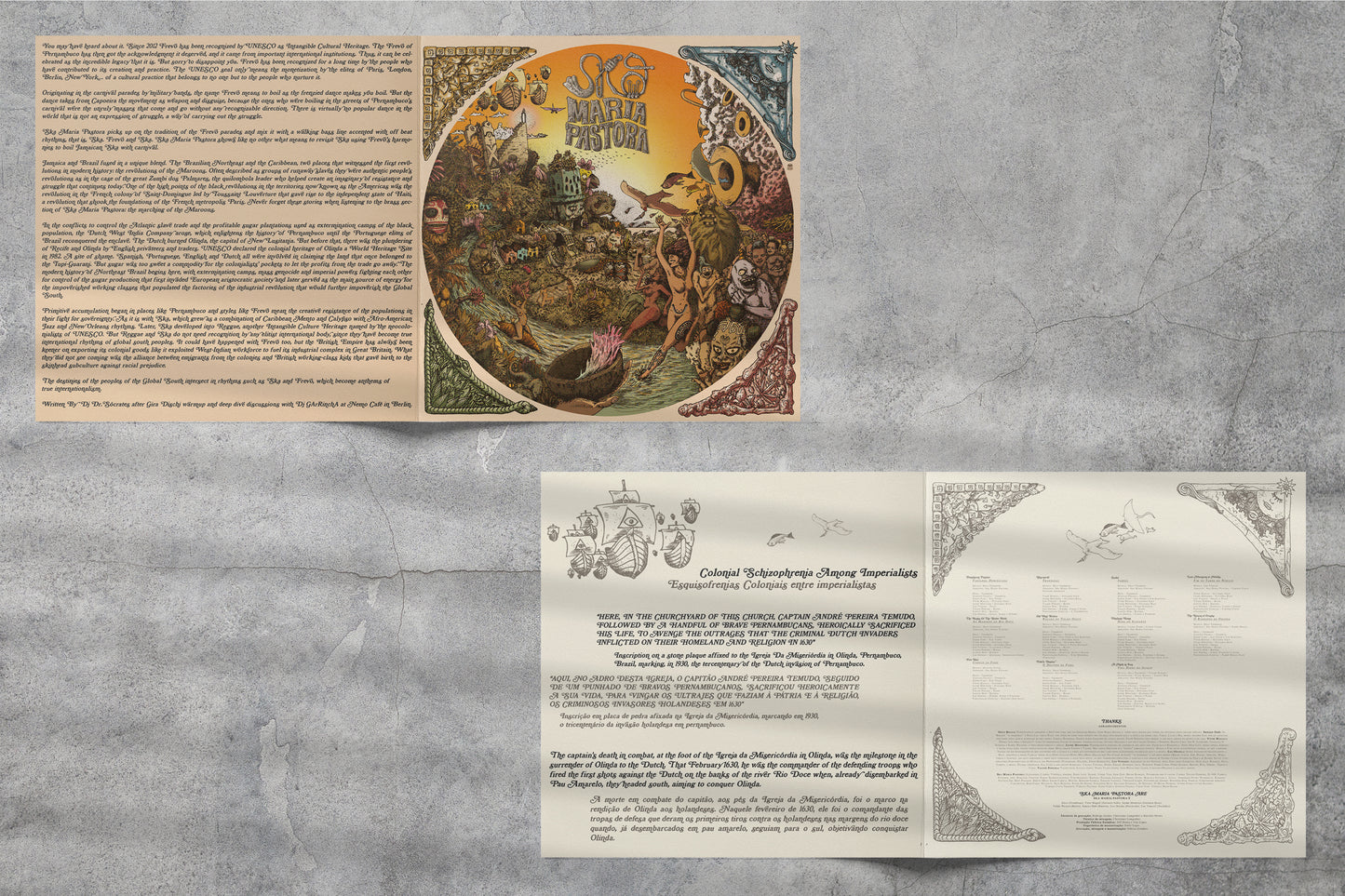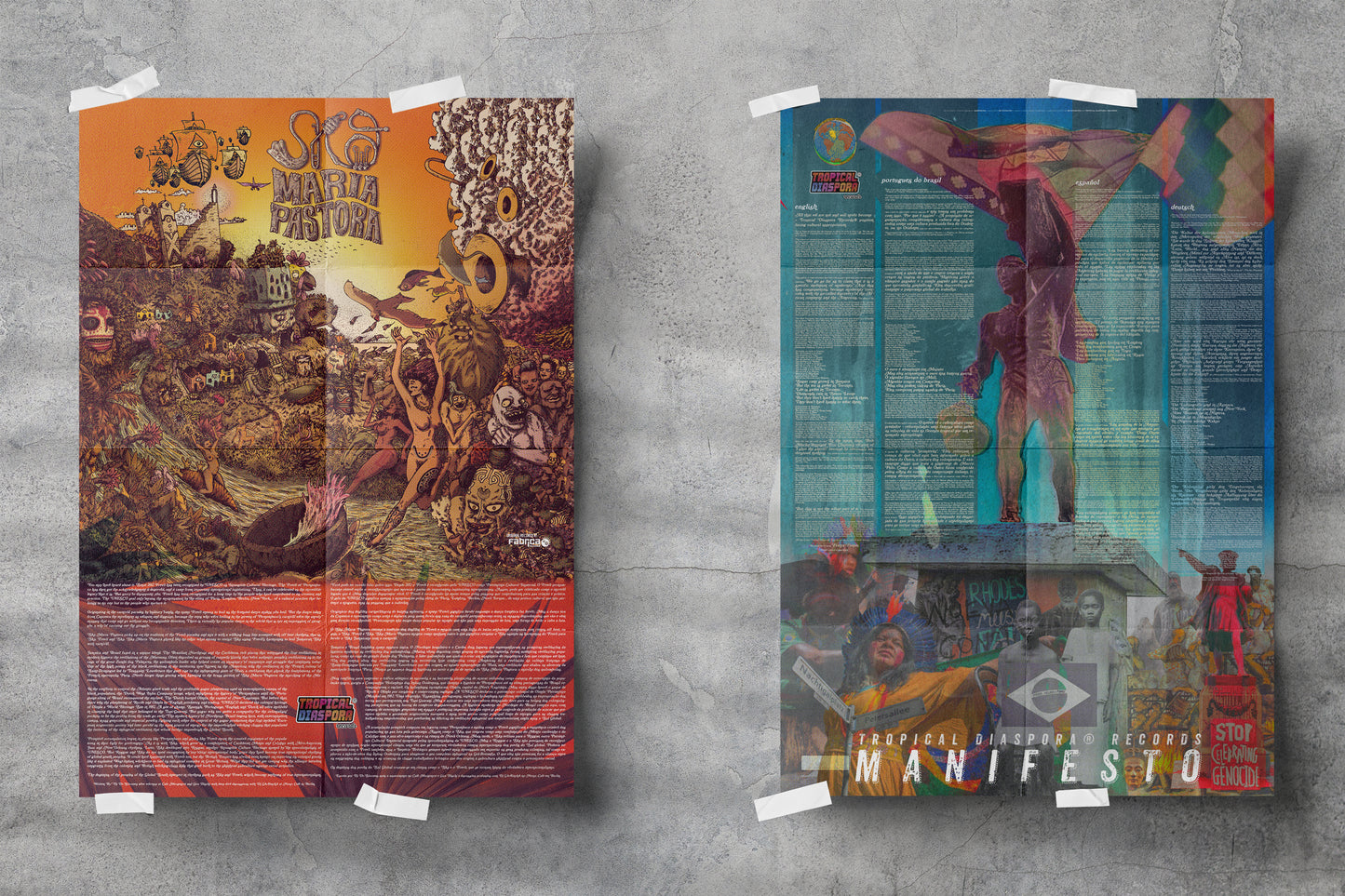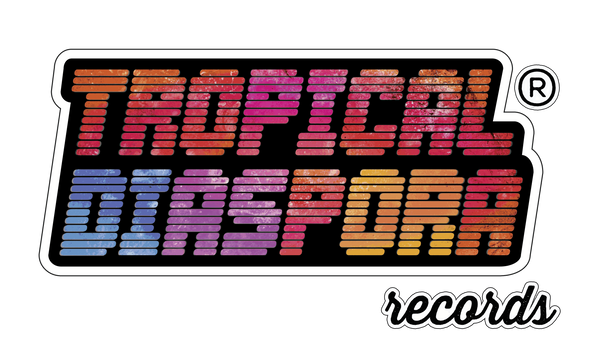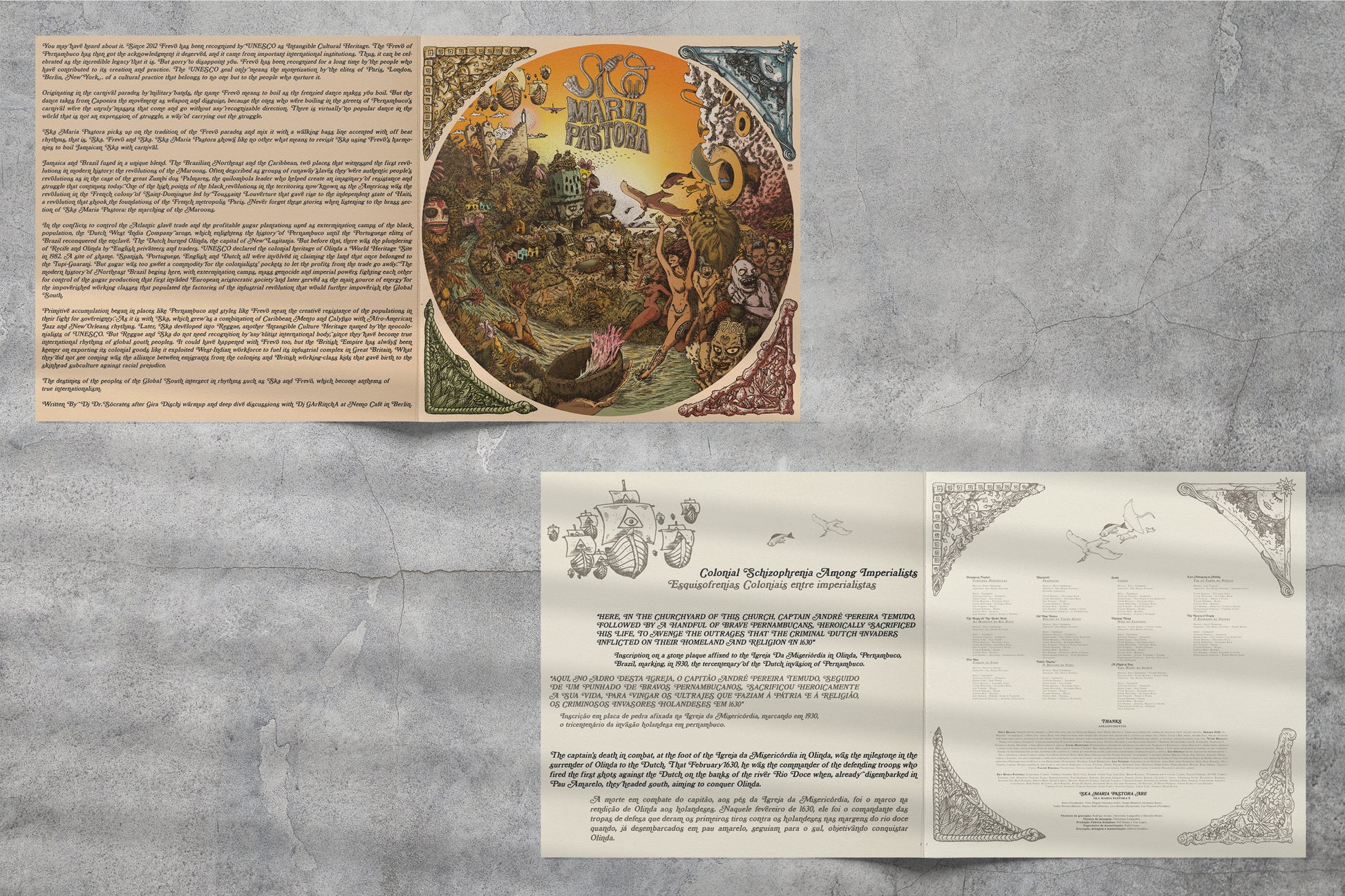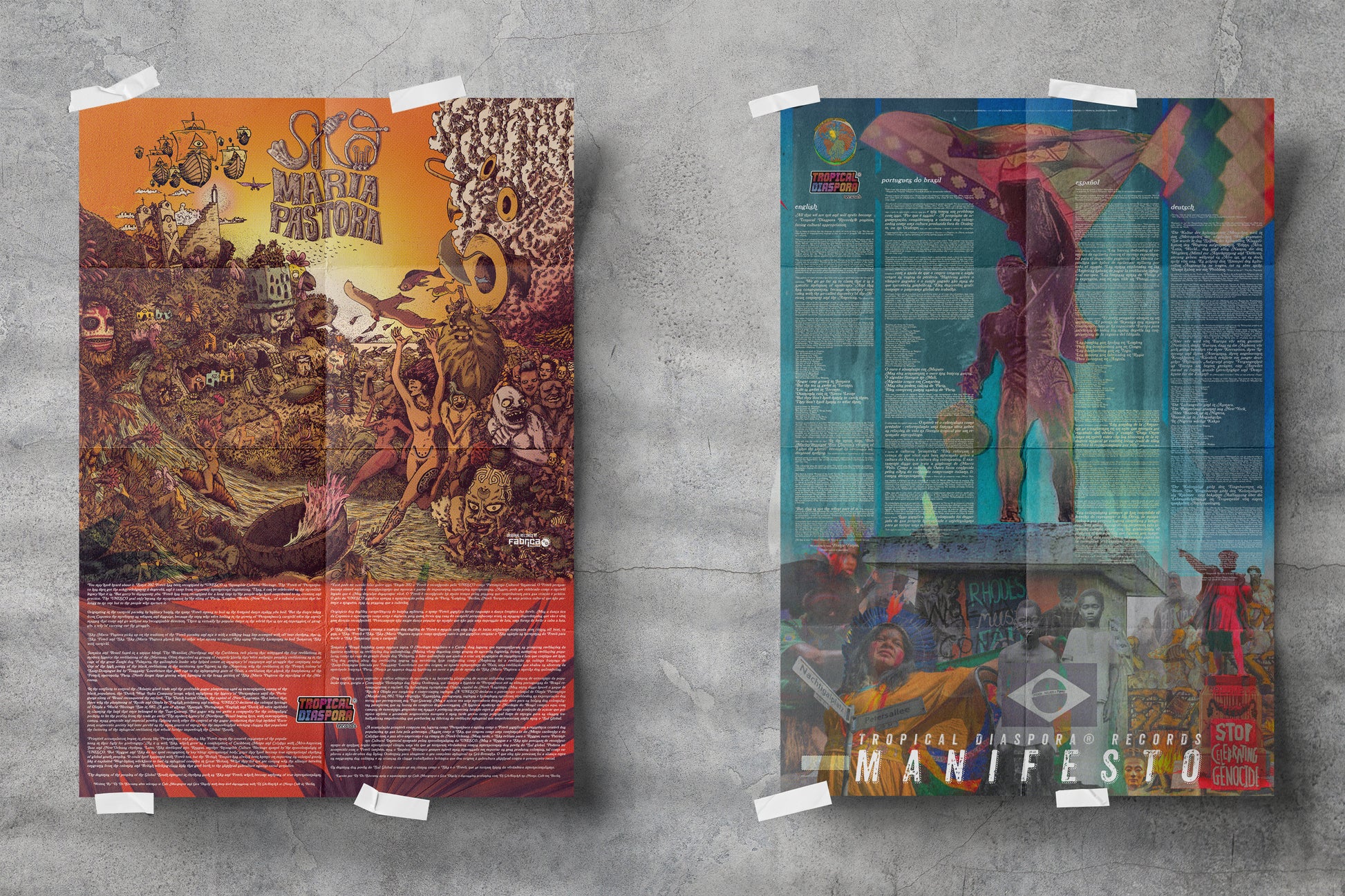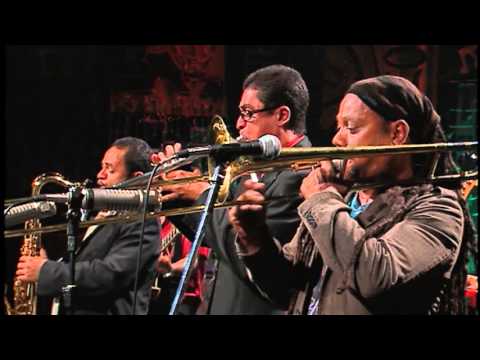1
/
of
8
Tropical Diaspora Records
As Margens Do Rio Doce by Ska Maria Pastora
As Margens Do Rio Doce by Ska Maria Pastora
Regular price
€45,00 EUR
Regular price
€49,00 EUR
Sale price
€45,00 EUR
Unit price
/
per
Taxes included.
Shipping calculated at checkout.
As Margens Do Rio Doce
Final Cut Remastered for Vinyl released now
180g Viollet Vinyl, Gatefold, 2 Posters A1 Format and 4 Pages Booklet.
Tropical Diaspora Music from Brazil and Jamaica
Two Afro Diasporas separated by geography
united by resistance.
Frevo & Ska the sisters in resistance and class struggle.
You may have heard about it. Since 2012 Frevo has been recognized by UNESCO as Intangible Cultural Heritage. The Frevo of Pernambuco has then got the acknowledgment it deserved, and it came from important international institutions. Thus, it can be celebrated as the incredible legacy that it is. But sorry to disappoint you. Frevo has been recognized for a long time by the people who have contributed to its creation and practice. The UNESCO seal only means the monetization by the elites of Paris, London, Berlin, New York… of a cultural practice that belongs to no one but to the people who nurture it.Originating in the carnival parades by military bands, the name Frevo means to boil as the frenzied dance makes you boil. But the dance takes from Capoeira the movement as weapon and disguise, because the ones who were boiling in the streets of Pernambuco’s carnival were the unruly masses that come and go without any recognizable direction. There is virtually no popular dance in the world that is not an expression of struggle, a way of carrying out the struggle.
Ska Maria Pastora picks up on the tradition of the Frevo parades and mix it with a walking bass line accented with off beat rhythms, that is, Ska. Frevo and Ska. Ska Maria Pastora shows like no other what means to revisit Ska using Frevo’s harmonies to boil Jamaican Ska with carnival.
Jamaica and Brazil fused in a unique blend. The Brazilian Northeast and the Caribbean, two places that witnessed the first revolutions in modern history: the revolutions of the Maroons. Often described as groups of runaway slaves they were authentic people’s revolutions as in the case of the great Zumbi dos Palmares, the quilombola leader who helped create an imaginary of resistance and struggle that continues today. One of the high points of the black revolutions in the territories now known as the Americas was the revolution in the French colony of Saint-Domingue led by Toussaint Louverture that gave rise to the independent state of Haiti, a revolution that shook the foundations of the French metropolis Paris. Never forget these stories when listening to the brass section of Ska Maria Pastora: the marching of the Maroons.
In the conflicts to control the Atlantic slave trade and the profitable sugar plantations used as extermination camps of the black population, the Dutch West India Company arose, which enlightens the history of Pernambuco until the Portuguese elites of Brazil reconquered the enclave. The Dutch burned Olinda, the capital of New Lusitania. But before that, there was the plundering of Recife and Olinda by English privateers and traders. UNESCO declared the colonial heritage of Olinda a World Heritage Site in 1982. A site of shame. Spanish, Portuguese, English and Dutch all were involved in claiming the land that once belonged to the Tupi-Guarani. But sugar was too sweet a commodity for the colonialists’ pockets to let the profits from the trade go away. The modern history of Northeast Brazil begins here, with extermination camps, mass genocide and imperial powers fighting each other for control of the sugar production that first invaded European aristocratic society and later served as the main source of energy for the impoverished working classes that populated the factories of the industrial revolution that would further impoverish the Global South.
Primitive accumulation began in places like Pernambuco and styles like Frevo mean the creative resistance of the populations in their fight for sovereignty. As it is with Ska, which grew as a combination of Caribbean Mento and Calypso with Afro-American Jazz and New Orleans rhythms. Later, Ska developed into Reggae, another Intangible Culture Heritage named by the neocolonialists of UNESCO. But Reggae and Ska do not need recognition by any elitist international body, since they have become true international rhythms of global south peoples. It could have happened with Frevo too, but the British Empire has always been keener on exporting its colonial goods like it exploited West-Indian workforce to fuel its industrial complex in Great Britain. What they did not see coming was the alliance between emigrants from the colonies and British working-class kids that gave birth to the skinhead subculture against racial prejudice.
The destinies of the peoples of the Global South intersect in rhythms such as Ska and Frevo, which become anthems of true internationalism.
Edited by Dr.Sócrates
Music by Deco Trombone
Arranged by Ska Maria Pastora
Remastered and Reedited for Vinyl and Cassette
by Tropical Diaspora® Records
Disclaimer: The images shown are for illustration and mock-up purposes only and may not be an exact representation of the product.
Couldn't load pickup availability
Share




